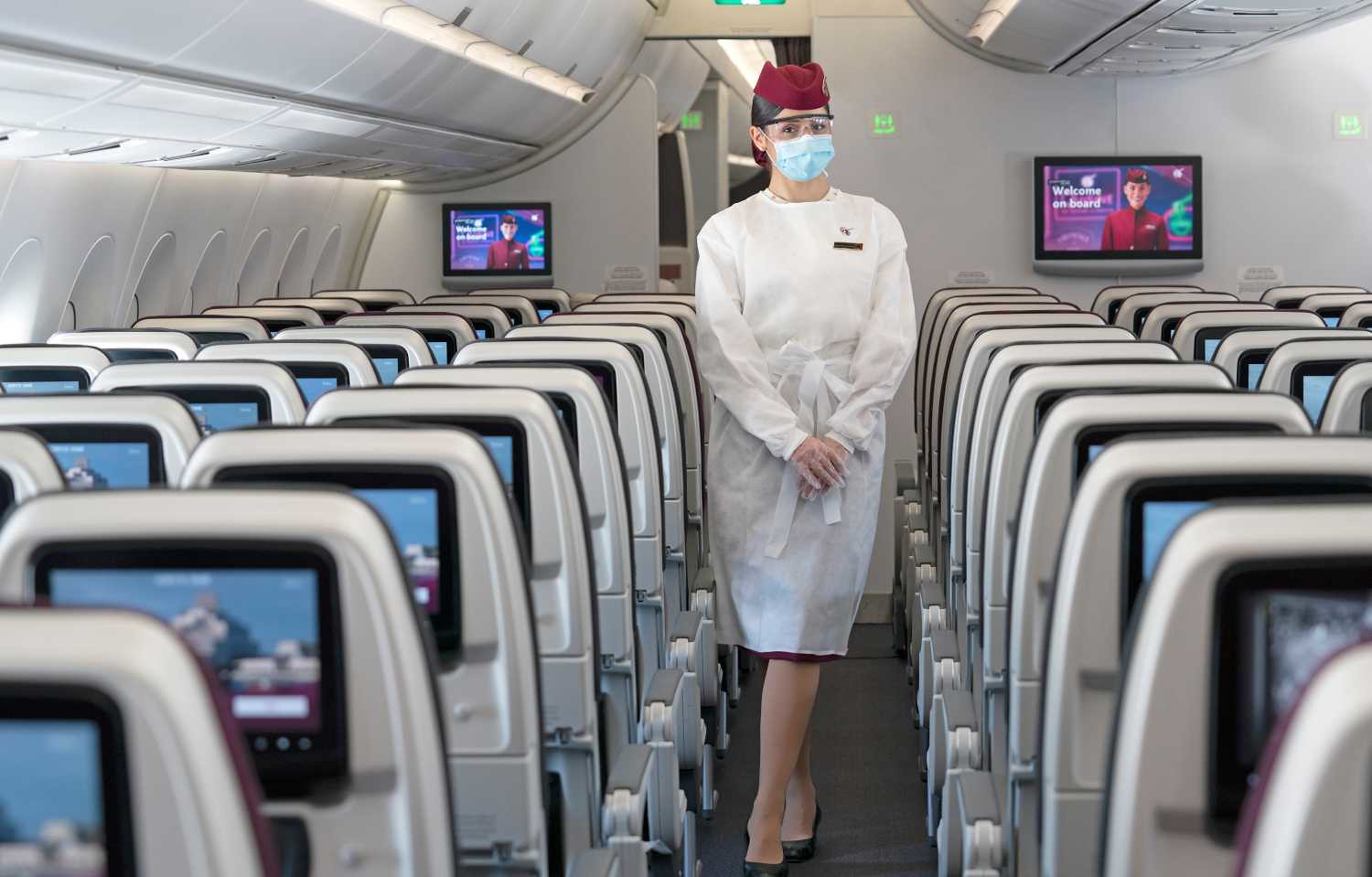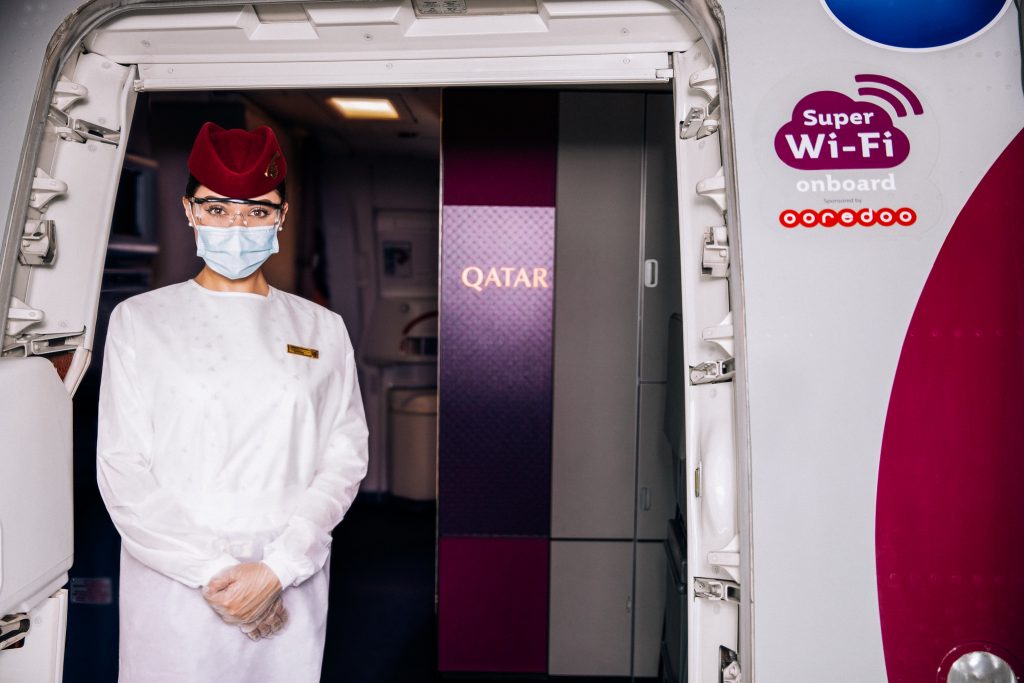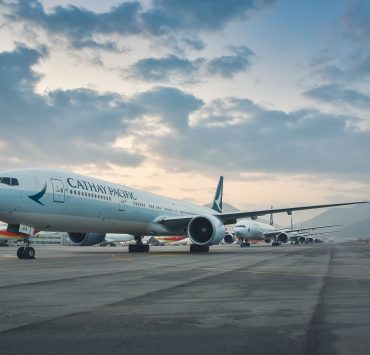
Qatar Airways has brought back enhanced personal protective equipment (PPE) for its cabin crew including a disposable gown, goggles, gloves and obligatory face mask.
The new requirements were reintroduced on Sunday over fears passengers and crew are up to three times more likely to become infected with Omicron during a flight compared to previous variants of the COVID-19 virus.

Cabin crew for the Doha-based airline are expected to wear the extra PPE on all flights and must wear disposable gloves when walking through airport terminals. Qatar Airways has confirmed the new rules but has not said how long the requirements may remain in force.
Relatively early on in the pandemic in May 2020, Qatar Airways took the drastic decision to dress cabin crew in head to toe paper hazmat suits. The suits, which chief executive Akbar Al Baker admitted were uncomfortable and hard to work in, were introduced at the same time that it became mandatory for passengers to wear face masks on Qatar Airways flights.
Cabin crew continued to wear the hazmat suits for nearly two months before Qatar Airways switched to paper wrap-around gowns that were similar to those popularised by Emirates and Etihad Airways.
At that time, Qatar Airways started to require Economy class passengers to wear face shields throughout the flight in addition to a face mask, although that measure isn’t being reintroduced.
In fact, only last week, Qatar Airways said it was rolling back other pandemic-era protective measures with the reintroduction of a full dining service in First and Business Class. The new service will initially be introduced on flights between Doha and London and Paris where Omicron cases are surging.
In January, the dining service will be gradually rolled out across the airline’s network. Some of the changes include individual layups rather than tray sets and the removal of plastic lids. The process will require increased interaction and closer proximity between cabin crew and passengers.
Dr David Powell, medical adviser to the International Air Transport Association, played down those fears, however, saying there is very little evidence of crew-to-passenger transmission. In a recent Bloomberg interview, Dr Powell also noted, though, that airlines probably shouldn’t bother dressing cabin crew in full protective clothing and face shields.
Mateusz Maszczynski honed his skills as an international flight attendant at the most prominent airline in the Middle East and has been flying throughout the COVID-19 pandemic for a well-known European airline. Matt is passionate about the aviation industry and has become an expert in passenger experience and human-centric stories. Always keeping an ear close to the ground, Matt's industry insights, analysis and news coverage is frequently relied upon by some of the biggest names in journalism.









